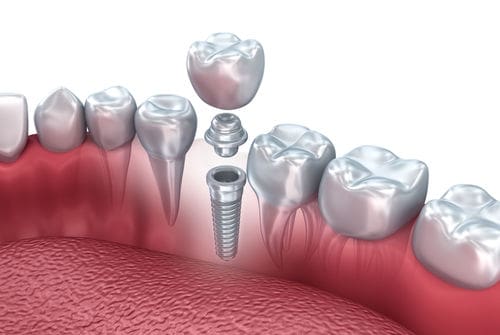Do your gums often bleed? Do they feel sore, or have you been told that you have bad breath? These are common signs of gum disease, medically known as periodontal disease. This oral condition is a bacterial infection of the gums. Gum disease eventually progresses to gingivitis that can further lead to the development of tender gums, bad breath, and tooth loss. If gum disease is not properly treated, it can worsen into a condition called periodontitis, which is an advanced form of gum disease.
You may be surprised to learn that almost 75 percent of all adults are affected by gingivitis. This common condition starts with the presence of plaque, which is a bacterial film found on the teeth. If you have gum disease, your gums may eventually become red and inflamed. You may find that they easily bleed whenever you brush and floss your teeth.
The good news is that practicing healthy oral habits at home, combined with professional dental care, can prevent or even reverse the early stages of gum disease.
Risk Factors of Gum Disease
- Poor oral hygiene habits
- Smoking
- Pregnancy
- Genetics
- Diabetes
- Teeth that are difficult to clean because they are crooked or misaligned
- Taking certain medications, such as those that cause dry mouth
Gum Disease and Diabetes
Gum disease occurs whenever your gums recede from your teeth, leading to the development of small pockets. Food debris can become stuck in these pockets, feeding oral bacteria that secrete toxins that harm your gums and cause inflammation. Left untreated, the tissues and bones supporting your teeth can begin breaking down.
Diabetics have an impaired ability to heal since their immune system has been weakened. This means that their gum tissue can become damaged at a faster rate than it can be repaired.
The presence of plaque near gum tissue causes an inflammatory response that makes the control of blood sugar more difficult. Research has found that almost 20 percent of individuals suffering from periodontitis also had type II diabetes but did not know it.
It is critical that diabetics prioritize their oral health. The combination of good blood glucose level management and proper oral hygiene, as well as regular dental visits, can help to prevent oral problems linked to diabetes.
Links Between Gum Disease and Heart Disease
There is a growing body of research linking periodontal disease with heart disease, although results are not yet conclusive. The link may be due to the production of inflammatory proteins found in blood plasma. People with gum disease have elevated levels of these proteins in their bloodstreams, and their levels may increase due to inflammation.
It appears that oral bacteria found in gum tissue can get into the bloodstream and migrate to distant blood vessels, leading to inflammation and arterial plaque. A 2010 study detected the presence of oral bacteria within the arterial plaque, as well as evidence that oral bacteria leads to systemic inflammation and the development of cholesterol that blocks proper blood circulation.
Additional research found that treating gum disease can help alleviate the symptoms of heart disease and related conditions. Researchers also discovered that there is a significant link between oral health and the risk of having a stroke. In addition, evidence has shown that bacteria found in dental plaque can trigger blood clots.
Schedule Your Appointment
You can prevent gum disease by practicing good oral hygiene at home and keeping up with your regular checkups and dental cleanings. If you have been neglecting your regular dental cleanings lately, we encourage you to contact Liberia Dental Care! Our team can help you get back on track and prevent the negative health risks associated with gum disease.









